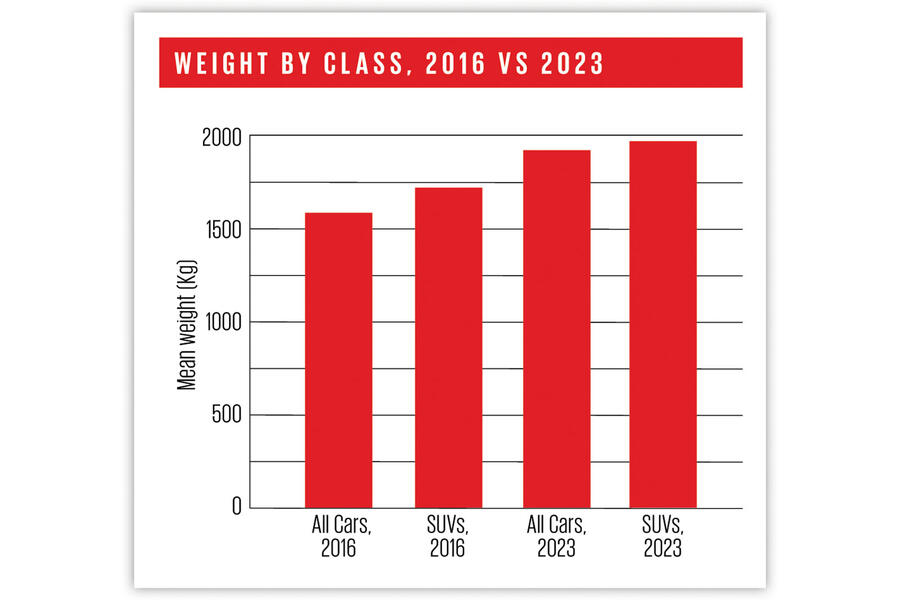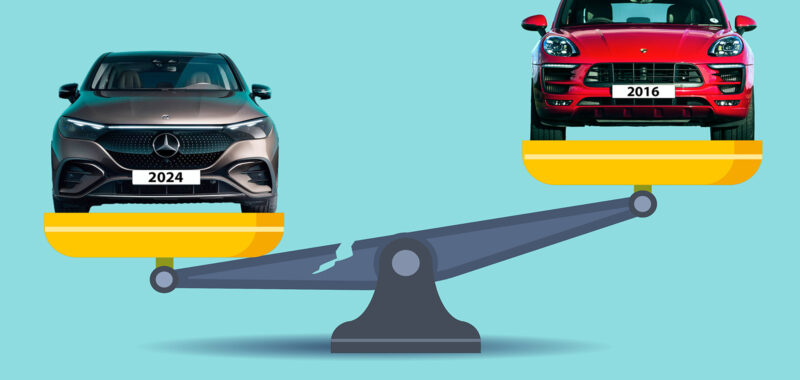The average weight of a new car has increased by nearly 400kg over the past seven years, according to Autocar data.
Analysis of weight figures from Autocar road tests shows that between 2016 and 2023 – approximately one model cycle – the mean average kerb weight of new cars rose from 1553kg to 1947kg.
The increase is in part attributable to the increasing popularity of SUVs. Of all the cars road tested by Autocar in 2016, 16 were SUVs or crossovers. These had a mean average weight of 1722kg, 169kg above that for all models tested that year.
Many of the SUVs driven that year were heavier than their saloon or hatchback counterparts. The Skoda Kodiaq, for example, weighed 1751kg, 246kg heavier than the Skoda Superb tested the year prior. Similarly, the Jaguar F-Pace was 180kg heavier than the XF with the same 2.0-litre diesel engine.
In 2023, a total of 24 SUVs, crossovers and pick-up trucks were tested, tipping the scales at a mean weight of 1985kg. That is a gulf of 38kg compared with the overall average – significantly smaller than the 169kg difference in 2016.
SUVs and crossovers averaged 1906kg, which was below the mean average for all models tested in 2023 – suggesting that although the increased proportion of SUVs on the market is partially responsible for the overall rise in weight, it isn’t the sole cause.
This suggestion is backed up by the fact that the average SUV tested in 2023 was 183kg heavier than it was in 2016.

Electrification has too played a role in fattening new cars. Battery-electric models road tested by Autocar last year had an average weight of 1991kg. Combustion-engined cars were almost 100kg lighter, at 1897kg.
Excluding hybrids and plug-in hybrids, which carry the burden of electric motors and sizeable batteries, this figure falls to 1841kg, or 150kg less than the average EV.

